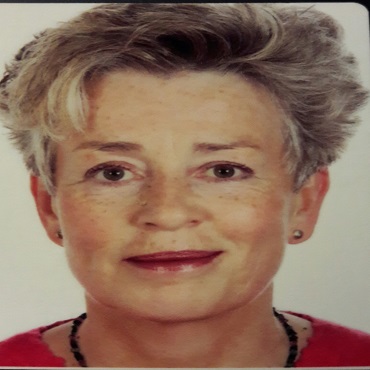Scientific Program

Sabine Schuetze
psychiatrist in the Vivantes Hospital Berlin-Neuköllnt, Germany
Biography:
Sabine Schütze after graduation from medical studies at the University of Hamburg, Germany in 1983 she began an internship at the Psychiatric Department of the University Hospital in Hamburg, which included a training in CBT. In 1988 she continued on specialization in the department of Neurology and Psychiatry at the General Hospital in Berlin-Moabit, where she was engaged in teaching psychiatric topics to young nurses. After completion of her internship in 1992 she applied as a certified psychiatrist and psychotherapist for the position as a senior psychiatrist at the Klinikum Am Urban in Berlin-Kreuzberg, where she focused her work on the themes of addiction and personality disorders. From 1994 to 2018 she worked as a senior psychiatrist in the Vivantes Hospital Berlin-Neukölln.
Abstract
The Open Dialogue Approach is both a community-based and social network-oriented treatment system offered to persons in psychic crises and their families, which follows certain guidelines as e.g. immediate help, which is given in a flexible and mobile way, and a special therapeutic attitude with a way of communication with the patients and their families. The essential elements of this communication have to be trained, which may take place as an in house-training or within a series of workshops visited by members of different institutions. Though these training groups are usually multiprofessionally composed, so that participants of different backgrounds learn together, the importance of considering psychiatric nurses in these trainings has to be pointed out: as one of the characteristics of the ODA consists of its non-hierarchical attitude, so trained nurses usually enjoy an improved position in their team, respectively in the contact with patients and their families, experiencing themselves as more competent and interested in the contexts of crises. This process will be illustrated by the example of the feedback to a questioning carried out with psychiatric nurses after an in house-training in a psychiatric hospital in Berlin.
- Nursing Care
- Registered Nurse & Advanced Practice Registered Nurse (APRN)
- Legal Nurse and Practitioner
- Intensive Care Nursing
- Mental Health, Psychiatrist and Addictions Nursing
- Pediatric Nursing
- Cardiovascular Nursing
- Oncology Nursing
- Community Health Nursing
- Public Health Care

